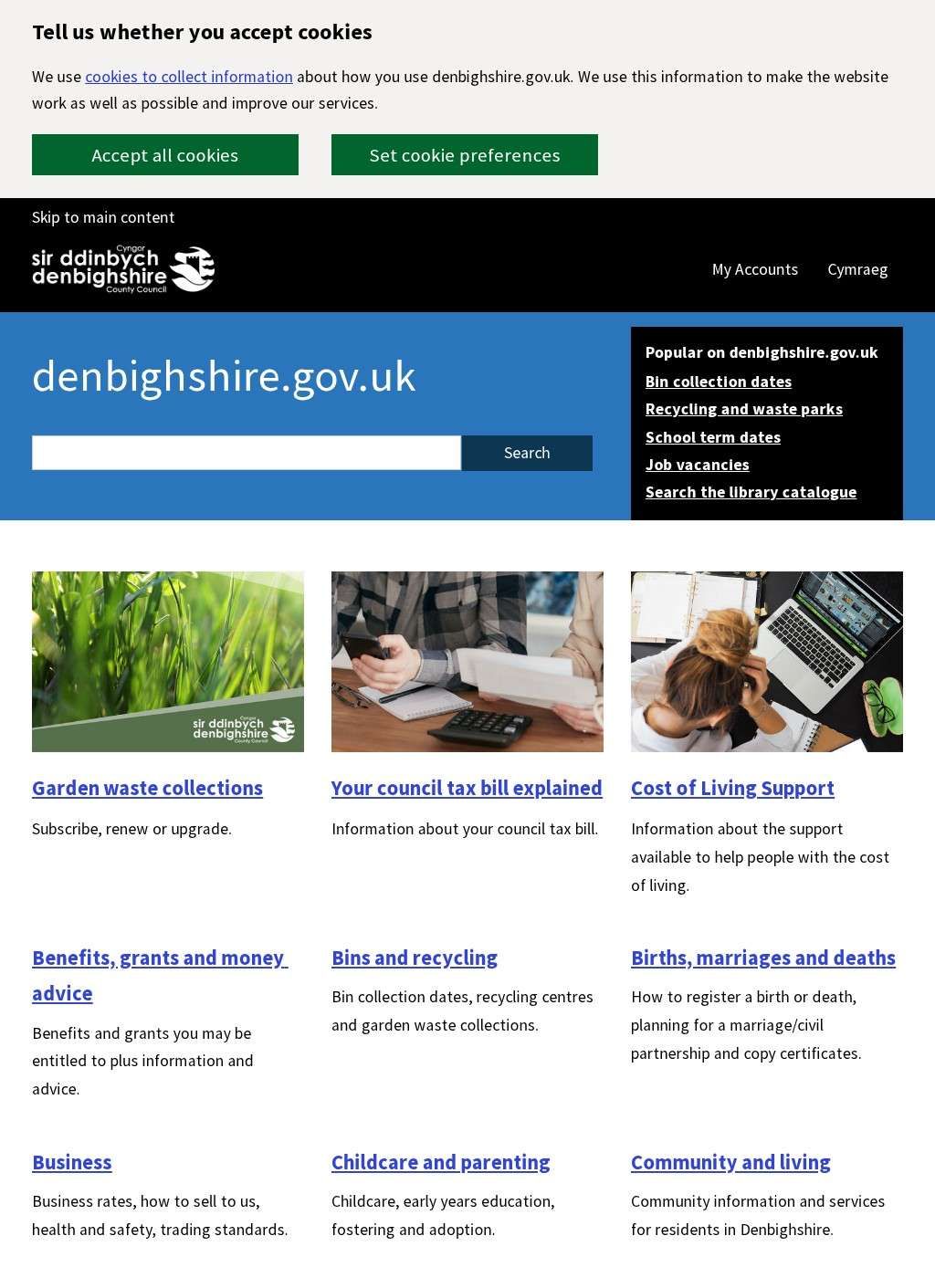Denbighshire County Council stands as the primary governmental authority for this historic Welsh county, serving approximately 96,000 residents across a diverse landscape that stretches from the Irish Sea coastline to the Clwydian Range. The council operates from its headquarters at County Hall in Ruthin, a modern facility rebuilt in 2004 behind the preserved frontage of the original 1909 building. This local authority manages the full spectrum of public services that residents rely on daily, from waste collection and recycling programmes to social care provisions and educational services.
The council's digital presence through its bilingual website serves as a comprehensive portal where residents can access vital services round the clock. Citizens can manage their council tax accounts online, check bin collection schedules, apply for various licenses and permits, and report issues ranging from potholes to fly-tipping. The platform particularly excels in providing accessible information about cost-of-living support, which has become increasingly crucial for many households. Through the website, eligible residents can discover various benefits and grants available to them, whilst businesses can find information about rates, trading standards compliance, and opportunities to supply services to the council.
Education forms a cornerstone of the council's responsibilities, overseeing dozens of primary and secondary schools throughout the county. Parents and guardians can find comprehensive information about school admissions, transport arrangements, and term dates through dedicated sections of the website. The authority also manages adult learning programmes and works closely with regional further education providers to ensure lifelong learning opportunities remain accessible to all residents. School performance data, inspection reports, and consultation documents on educational policies are readily available, ensuring transparency in this critical service area.
Planning and development control represents another significant function, with the council processing hundreds of applications annually. Property developers, homeowners, and businesses can submit planning applications online, track their progress, and view decisions on other applications in their area. The planning portal provides access to local development plans, conservation area designations, and supplementary planning guidance that shapes how Denbighshire evolves whilst protecting its historic character and natural beauty.
Social care services span from children's services, including fostering and adoption programmes, through to adult social care supporting elderly residents and those with disabilities. The council coordinates with health services to provide integrated care packages, manages care home placements, and offers respite services for carers. Early intervention programmes aim to support families before difficulties escalate, whilst safeguarding teams work to protect vulnerable individuals. Information about these sensitive services is presented with appropriate discretion, providing clear pathways for those seeking help.
Environmental services encompass waste management, recycling initiatives, and climate change responses. The council operates several recycling centres and promotes ambitious recycling targets through comprehensive kerbside collection schemes. Recent initiatives include expanding food waste collections and introducing stricter controls at waste parks to improve recycling rates. Climate and ecological emergency declarations have led to new strategies for reducing the council's carbon footprint and supporting biodiversity across the county.
The democratic structure includes 48 elected councillors representing 29 wards, with meetings now livestreamed to improve transparency and public engagement. Committee papers, minutes, and decisions are published online, allowing residents to follow local democracy in action. The council operates under a multi-party cabinet system, with various scrutiny committees ensuring proper oversight of executive decisions. Public participation in council meetings is encouraged, with clear procedures for submitting questions or petitions on matters of local concern.
Leisure and cultural services receive significant attention, with the council managing libraries, leisure centres, and countryside sites including parts of the Clwydian Range Area of Outstanding Natural Beauty. The authority supports tourism development, recognising its economic importance to towns like Llangollen, Rhyl, and Prestatyn. Cultural initiatives include supporting the Welsh language, with the website fully bilingual and services available in both languages. The council also maintains public rights of way, coastal defences, and promotes active travel through cycling and walking infrastructure improvements.
Economic development programmes aim to revitalise town centres and support business growth throughout the county. Regeneration projects in Rhyl have transformed the seaside resort, whilst rural economic initiatives help sustain smaller communities. The council provides business support services, promotes inward investment, and works with regional partners on strategic economic plans. Skills development programmes link with local employers to address workforce needs and create employment opportunities for residents.
Emergency planning and community safety remain priorities, with the council coordinating responses to floods, severe weather, and other incidents. Community safety partnerships tackle anti-social behaviour, whilst trading standards teams protect consumers from rogue traders and unsafe products. The council also manages civil registration services for births, deaths, and marriages, providing a personal touch during life's significant moments.
Financial pressures common to local government across the UK affect service delivery, yet the council maintains its commitment to protecting essential services. Budget consultations allow residents to influence spending priorities, whilst efficiency programmes seek to maximise value from every pound of public money. The website provides transparent financial information, including detailed budgets, audit reports, and explanations of how council tax calculations work.
Contact options range from traditional phone lines and face-to-face services at one-stop shops in major towns to modern digital channels including online forms and email. The council recognises that different residents prefer different communication methods and maintains multiple channels to ensure accessibility. Response time commitments and service standards are clearly published, helping residents understand what to expect when contacting the authority. Welsh language services are available across all contact methods, reflecting the council's commitment to bilingual service provision in this proudly Welsh county.
